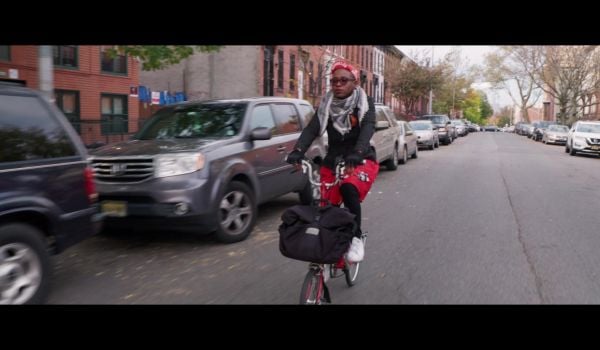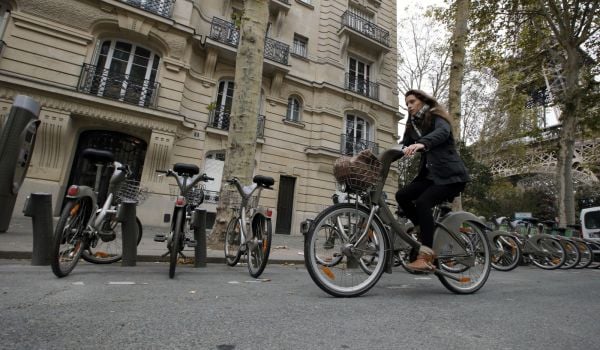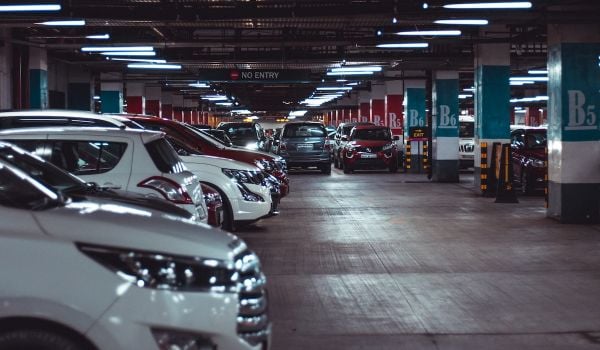One of the most urgent problems in transportation policy today is relieving the horrible congestion on American roads. Perhaps the most obvious way to go about this would be to start pricing driving at more realistic levels. As it is now, driving is heavily subsidized by the federal government: The feds not only mitigate the price of gas, but also the price of maintaining roads and highways. Furthermore, road space and carbon emissions due to automobiles have associated costs and as such are unpriced commodities, thereby encouraging excess usage. The hard part is convincing people that driving their car is not a universal right, but a privilege we all must pay for.
The gas tax has traditionally been the one gesture extended by the government that says drivers need to chip in to keep the highway system in decent repair. But there seems to be a perennial lack of political will in Washington to raise the gas tax to the prohibitively high levels Europeans drive under, levels that actually discourage excess driving and generate a more significant portion of the money needed for maintenance. U.S. Transportation Secretary Ray LaHood confirmed in a recent interview with the Washington Post that “there will be no raising the gas tax under this administration, particularly because of the rough shape that our economy is in, and with so many people out of work, it’s very difficult to be talking to people about raising the gas tax.”
In response, advocates of sustainable transportation policy have come up with another way to encourage good behavior: the “mileage tax,” which would tax drivers based on vehicle miles traveled instead of fuel used. Secretary LaHood actually pushed for the implementation of a mileage tax, but President Obama summarily dismissed the idea. Now, via the Infrastructurist, we learn that the mileage tax is very much still on the table, as the chair of the House Transportation & Infrastructure Committee, Rep. Jim Oberstar (D-MN), is strongly considering including the tax in his first draft of the upcoming House Transportation Bill.
The most apparent problem with the mileage tax from a sustainability point of view is that it doesn’t reward the use of vehicles that attain high MPG ratings like hybrids and the ever-looming electric car, but this is both a pro and a con. On the one hand, all that means is that there needs to be some serious exemptions built into the tax code to further encourage the spread of more efficient automobiles. On the other, the fact that the mileage tax would be applicable to electric cars gives it a big leg up over the gas tax. Setting up the infrastructure for a mileage tax now would be a sensible investment for the future when presumably more and more Americans will be driving electric so that we will ensure the continued presence of a healthy Highway Trust Fund.
The switch from consideration of gas consumed to miles traveled also allows us to better price the commodity of road space. As Joseph Sussman, external adviser to the DOT and professor at MIT, says in his interview in the current issue of Good magazine, the problem is not highway capacity; we have plenty of that. The problem is that everybody wants to use the highways at the same time. His recommendation is “universal road pricing” which would feature a tax on a per-mile basis that would be leagues ahead of an ordinary mileage tax. Rather, “it would be on the basis of what road you were traveling, at what time of day, and so on. The idea is that through pricing, you can induce behavioral change.” In order to have such a tax, we’d have to have a constant stream of information on each registered vehicle, but we already have a fantastic prototype for such passive monitoring of driving activity in the EZ-Pass automated tolling systems in place across the country. Simple GPS devices implanted in cars would allow the government to calculate exact usage and pass along the charges to the driver in their annual taxes. Of course, this is all assuming we could get past the creepy, big-brotherly quality of the government tracking our every move.
But this is a case in which the benefits of shared information may outweigh the initial aversion to invasion of privacy. For instance, you could register with a carpool network so that you could connect with other members no matter which direction you’re headed, whether you’re on foot or behind the wheel. You could receive entirely accurate traffic reports in real-time to best choose your route, thereby spreading out congestion over the entire network of roads. And we could facilitate the study of traffic patterns in a way never before possible.
All of this is to say that not only will the mileage tax bring an accurate pricing of heretofore unpriced commodities, but it will facilitate future efforts to combat congestion through the use of coordinated car-sharing and traffic directing. Here’s hoping that Oberstar leads the way.

_600_350_80_s_c1.jpg)


_on_a_Sunday_600_350_80_s_c1.jpeg)










